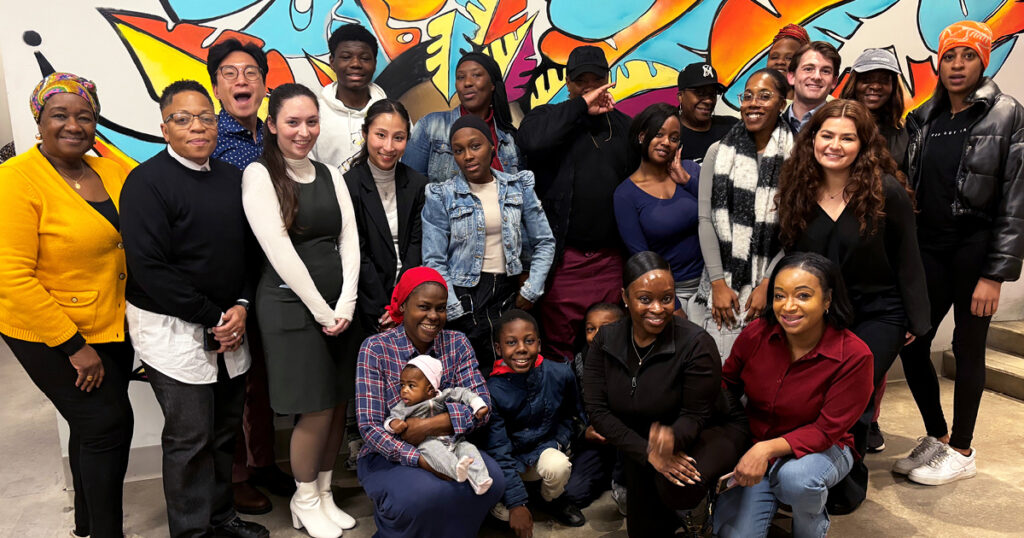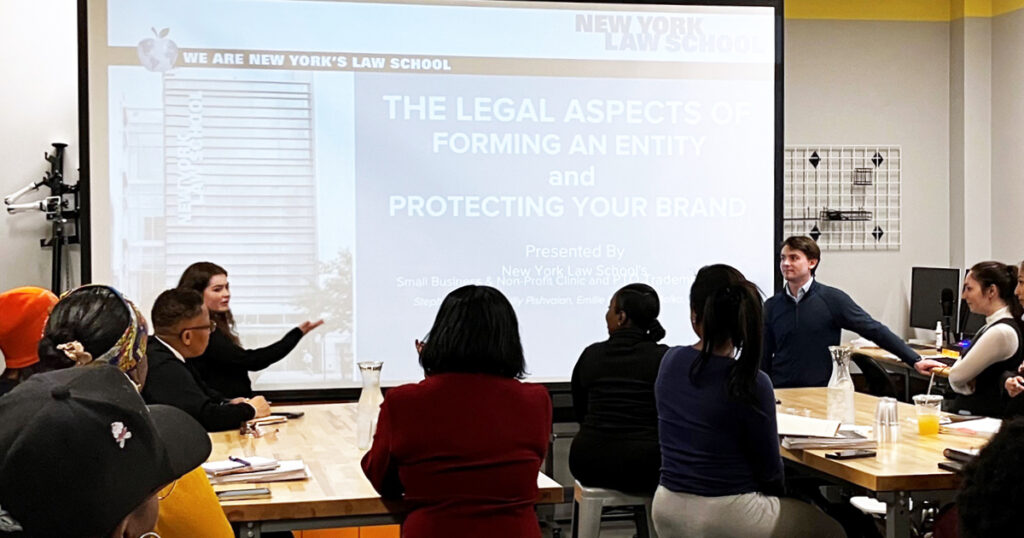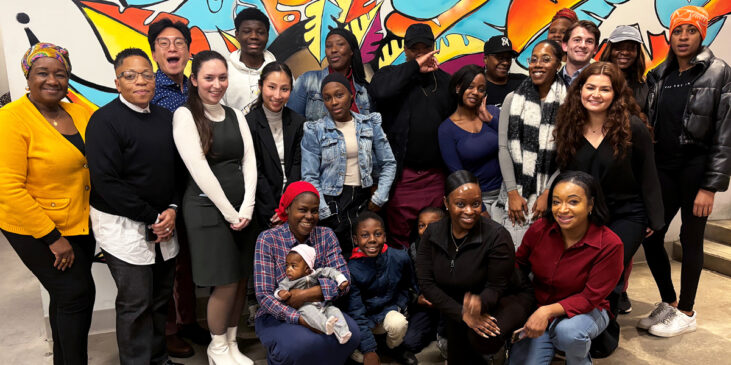
Mangrove Business Academy in Flatbush, Brooklyn, is an open workspace, learning annex, and cultural development center that supports local creative producers, makers, workers, and entrepreneurs. On November 21, four students from New York Law School (NYLS) visited Mangrove to give a presentation helping small business owners learn their options for legally safeguarding their businesses. Emilie Delannes-Molka ’25 and Mina Kim ’25 represented the PTO Trademark Clinic, while Stephen Navitsky ’25 and I represented the Nonprofit and Small Business Clinic; both clinics are part of The Plumeri Center for Small Business Empowerment.
Each clinic gave a one-hour presentation, providing an overview of key topics and answering a range of questions from the audience.
The small business owners are enrolled in a 12-week course that offers hands-on training to help them navigate the challenges of starting and managing a business. They meet weekly to discuss business planning, management, and operations. We had the opportunity to guide them through the legal concerns they need to consider when starting their ventures.
As members of the Nonprofit and Small Business Clinic with Professor Jae Hyung Ryu, Stephen and I focused on the business side of things, including choosing a business entity, the formation process, contractual concerns, and a new federal regulation known as the Corporate Transparency Act (CTA). When we asked how many of them had already formed an LLC, more than half raised their hands. Many of them were already familiar with the CTA. The audience was very engaged, asking thoughtful questions that really tested our understanding of the material. It felt less like a presentation and more like a conversation with like-minded individuals.
Emilie and Mina covered the importance of trademarks, including the different types, how to uniquely identify a business, and the process of filing with the U.S. Patent and Trademark Office (USPTO). Unsurprisingly, the audience was very interested and even sparked a discussion about how off-brand cereal companies might be allowed to use similar marks to name-brand companies. Throughout the session, participants continued to ask specific questions about how the information applied to their own businesses.
At the end of the presentation, the audience expressed their gratitude with a round of applause. As the daughter of an immigrant entrepreneur, this experience was particularly meaningful to me. I felt I was giving back to people who, like my father once did, are navigating the learning curve and excitement of starting a new venture.
Since the presentation, we’ve already heard from a prospective client who could benefit from the legal services offered by New York Law School’s clinics. This experience was incredibly rewarding, and I hope future NYLS students continue to collaborate with the Mangrove Business Academy in the years to come.

Experiential Learning at New York Law School
Experiential learning is an integral part of the NYLS education. Through our top-tier programs, we offer students the opportunity to turn theory into practice: Starting in their first year, students participate in counseling, interviewing, and negotiating exercises in their foundational Legal Practice course. During their upper-level years, students may select from a wide array of experiential learning courses to hone their lawyering skills. Together with a comprehensive legal education, these experiential offerings prepare our students for careers in advocacy.

